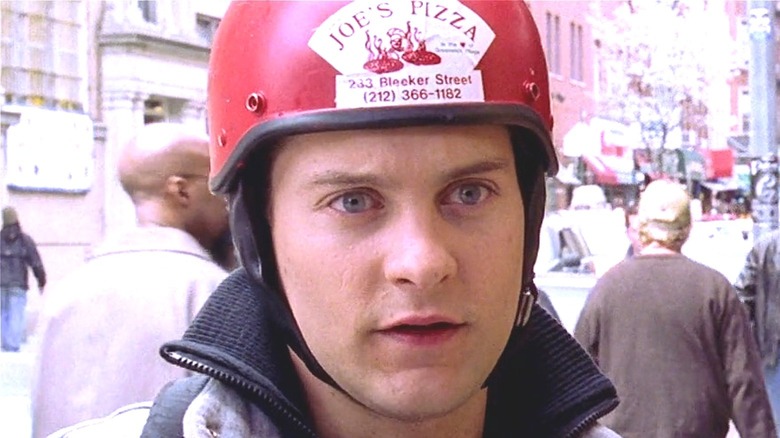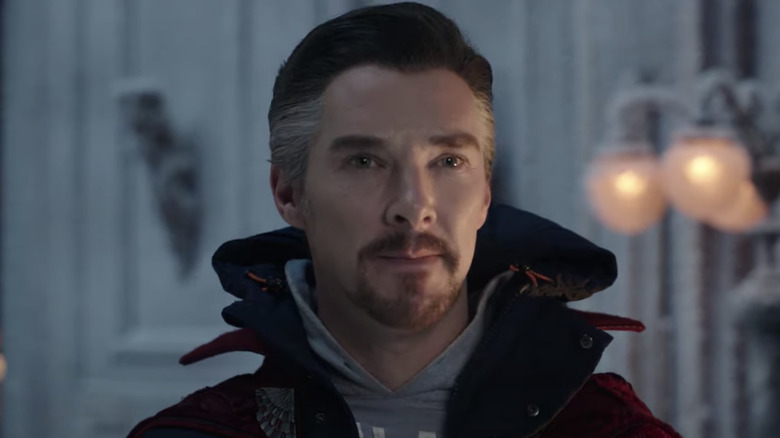Does Spider-Man: No Way Home Completely Change The Raimi-Verse And Webb-Verse?
"Spider-Man: No Way Home" is the biggest movie of the year, celebrating two decades of web-slinging cinema and bringing together the live-action Spider-Men from all three film versions of the character, along with nearly all of their respective villains.
To recap (massive, plot-ruining spoilers ahead; consider yourself forewarned), the plot of the film kicks off when the MCU Spider-Man (Tom Holland) is revealed to the public as Peter Parker by the dastardly J. Jonah Jameson (J.K. Simmons) after his climactic battle with Mysterio (Jake Gyllenhaal) in "Spider-Man: Far From Home." With the public believing him to be a murderer, neither his girlfriend, MJ (Zendaya), nor his best friend, Ned (Jacob Batalon), are admitted to university at M.I.T. In desperation, Peter seeks the help of former Sorcerer Supreme Doctor Strange (Benedict Cumberbatch), asking him for a spell that will erase the world's memories of his secret identity.
But when Peter's reluctance to actually go through with the spell results in a breaking of the spacetime continuum, villains from other dimensions pour through into his own. To gloss over as many spoilers as possible, the ending of the film sees Peter realizing that to be a hero is to be self-sacrificing, and he tells Doctor Strange that it's fine if the spell results in everyone, including MJ and Ned, forgetting that Peter Parker exists. Strange obliges, and both the other Spider-Men and the villains are sent back to their own worlds, while Peter goes on to live a life of painful isolation.
It's a satisfying ending in the moment, but the more it gets analyzed, the more one burning question emerges: in ending the way it does, did "No Way Home" inadvertently change the continuity of the non-MCU Spidey movies directed by Sam Raimi and Marc Webb?
Did Doctor Strange's spell send Spidey's villains home with amnesia?
As countless wish-based plots have taught us, from the ubiquitous monkey's paw to even the train wreck that was "Wonder Woman 1984," the way you phrase your wish can have a dramatic impact on the way it manifests. So, when Peter says he wants "everyone" to forget that "Peter Parker is Spider-Man," it's safe to assume that "everyone" includes Otto Octavius/Doctor Octopus (Alfred Molina), Norman Osborne/Green Goblin (Willem Dafoe), Max Dillon/Electro (Jamie Foxx), and the rest of his former nemeses, and that "Peter Parker" applies to all three Spider-Men. At the start of the film, all of the aforementioned villains save for Electro — who only learned the truth later on — knew who Spider-Man truly is in their respective worlds, but now, they may be sent home with no memory of the wall-crawler's identity.
It's hard to say whether that's an intentional element of the ending, or if it's an overlooked complication of the plot. It seems tragic that these people will not remember the person who saved their lives. Still, there's a chance that the spell only applies to people who are from the world in which it was cast. Since we will, in all likelihood, never see those villains again, we may never know their true fate, no matter how far into the multiverse we journey.

